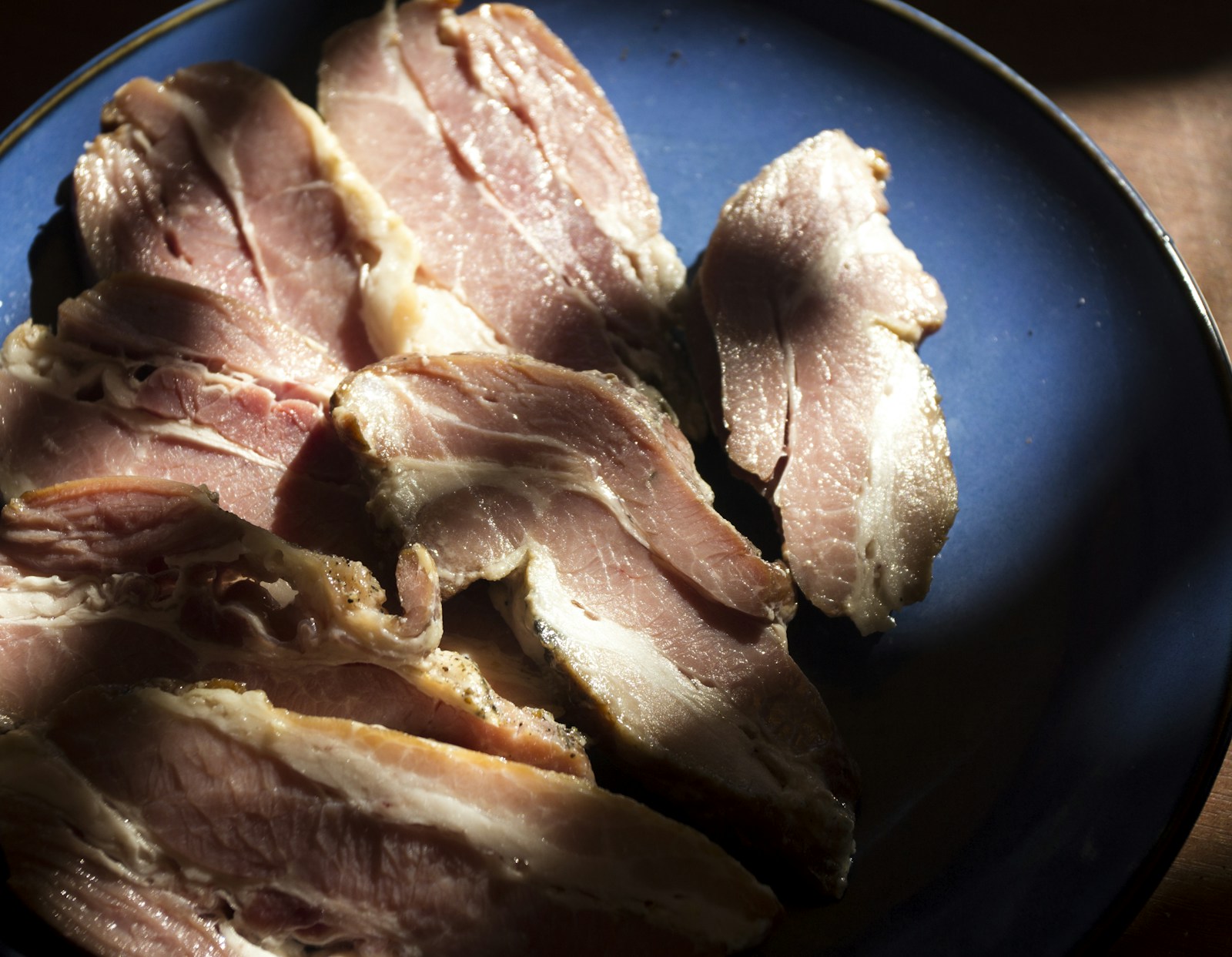
肉
ròu

meat
This term refers to meat in general, which includes options like pork, beef, chicken, etc.
Example sentences using: 肉
我们家每周都会吃肉。
Wǒmen jiā měi zhōu dōu huì chī ròu.

Our family eats meat every week.
This is a simple sentence to express one's family dietary habits, emphasizing on their regular intake of meat. It also helps the learners to understand the use of '每周' which means 'every week'.
我爸爸不喜欢吃肉。
Wǒ bàba bù xǐhuan chī ròu.

My father doesn't like to eat meat.
In this sample sentence, students learn on how to express likes and dislikes in Chinese, using '不喜欢', which means 'does not like'.
妈妈做的肉很好吃。
Māma zuò de ròu hěn hǎochī.

The meat mom cooks is very delicious.
This sentence is about expressing one's personal opinion about someone's cooking. It's a common phrase used when appreciating a family member's cooking skills.
我的兄弟不吃肉,他是素食者。
Wǒ de xiōngdì bù chī ròu, tā shì sùshí zhě.

My brother doesn't eat meat, he is a vegetarian.
The sentence helps to express one's dietary preferences and provides vocabulary for different diets. Here, '素食者' is the term for a vegetarian.
爸爸做的红烧肉很香。
Bàba zuò de hóngshāo ròu hěn xiāng.

The braised pork that dad cooked smells fragrant.
This is a sentence used to appreciate the smell of a dish. It also introduces the students to the term '红烧肉' which means 'braised pork'.
我的家庭晚餐经常有肉。
Wǒ de jiātíng wǎncān jīngcháng yǒu ròu.

My family dinner often has meat.
This phrase is about one's family meal preferences which includes meat. The term '晚餐' refers to 'dinner' in Chinese.
我妹妹不吃猪肉。
Wǒ mèimei bù chī zhūròu.

My younger sister doesn't eat pork.
This simple sentence introduces the term '猪肉', which means 'pork', and also reinforces the use of '不吃' to express 'does not eat'.
我们一家人都爱吃羊肉。
Wǒmen yī jiā rén dōu ài chī yángròu.

Our whole family loves to eat mutton.
This sentence helps students express collective likes or dislikes for something in a family. Here, '羊肉' is the term for mutton.
我奶奶会做很多好吃的肉菜。
Wǒ nǎinai huì zuò hěn duō hǎochī de ròu cài.

My grandma can make many delicious meat dishes.
This example sentence shows how to express someone’s abilities using '会' (can) in Mandarin, while also talking about the person's cooking skills. '肉菜' refers to 'meat dishes'.
这个肉是我姐姐买的。
Zhège ròu shì wǒ jiějie mǎi de.

None
This sentence helps the students understand the passive form in Chinese. The phrase '是...买的' is used to indicate something was done by someone.